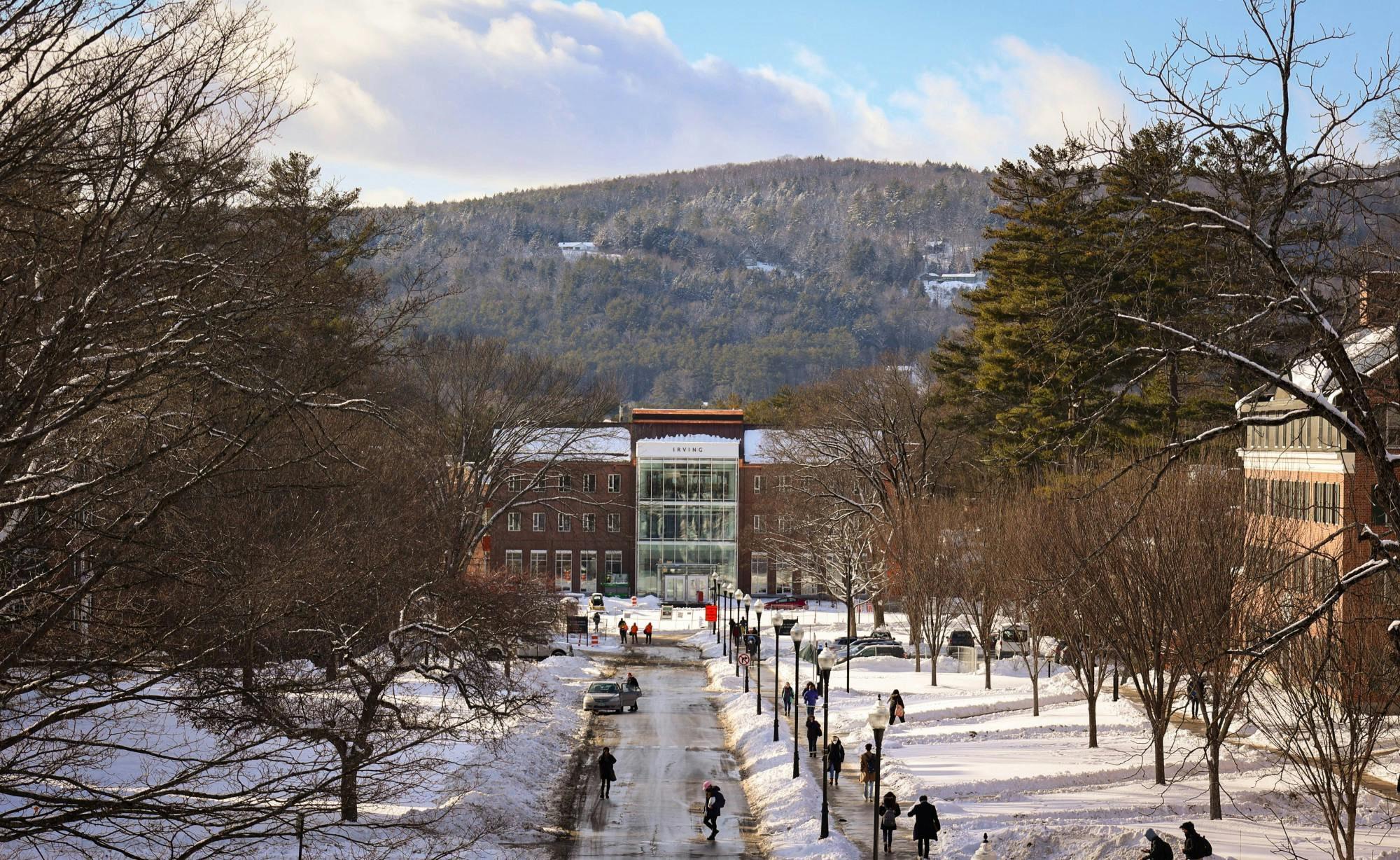The Energy Justice Clinic at Dartmouth, founded in Nov. 2021, is funded by the Irving Institute for Energy and Society and researches community power aggregation in New Hampshire and Indigenous environmental rights in southern Chile. The clinic includes faculty and student researchers.
The EJC engages in social science research on energy transitions, including moving away from fossil fuels and carbon intensive energy, according to anthropology professor Maron Greenleaf, who co-founded the clinic alongside postdoctoral researcher Sarah Kelly. The EJC’s current projects include producing timelines about community power aggregation in New Hampshire and California, a process which involves leveraging a community’s collective purchasing power to take advantage of market offerings or renewable options. The EJC is also conducting research on hydroelectric power in southern Chile, where Indigenous claims to land are in conflict with a Norwegian-backed infrastructure project.
Energy justice involves seeing “renewable energy as a basic human right,” according to Kate Yeo ’25, who works for the clinic. She explained that energy justice involves addressing issues in the energy sector and the transition to renewables, adding that communities of people of color face higher energy burdens and energy-related issues.
“Energy justice is really about making sure that everyone has access to energy, but not just that, making sure they have access to clean energy,” she said.
While the project is housed under the anthropology department, Kelly said that the clinic has three institutional partners — the Irving Institute for Energy and Society, the Center for Social Impact and the Design Initiative at Dartmouth.
Kelly said that the EJC is in its first year of operation, and is starting to build a network in New Hampshire with other “energy justice actors.”
“We have seed funding, and we’re looking to secure funding to run the clinic for additional years,” she said.
Greenleaf said the EJC’s vision is two-fold. First, she said that the clinic engages in social science research on energy transitions away from fossil fuels and “carbon intensive energy.” Second, she said the research involves undergraduate students at Dartmouth in partnership with community organizations.
“It’s kind of an engaged, service-learning model,” she said.
The clinic’s project in the Upper Valley involves supporting the town of Hanover and the Community Power Coalition of New Hampshire as they work on transitioning to community power aggregation, according to the EJC website.
“The EJC will help the transition to community power be inclusive and equitable,” the website said.
The town of Hanover joined the Community Power Coalition of New Hampshire last October in an effort to aggregate the community’s energy purchases to reach 100% renewable electricity by 2030 and lower energy prices for residents.
“With community power, you decentralize control of utilities, so everyone in a town would be able to participate in the production and distribution of energy sources,” Yeo said. “It gives them greater access to clean energy, and also, if it’s implemented right, it will help to lower electricity costs.”
Yeo said a large part of her work with the clinic is finding existing research on community power in order to apply best practices to New Hampshire.
“We really want to try and understand the unique context in New Hampshire and in Hanover specifically,” Yeo said.
Yeo also noted the importance of conducting interviews to her work at the EJC. For example, she said that Clifton Below, the assistant mayor of Lebanon, brought expertise to the clinic with years of experience in community power.
“He is the guy who has been championing community power for a really, really long time, so getting to interview him was really interesting,” she said.
Gannon Forsberg ’25, who also works on the EJC’s New Hampshire project, similarly said that investigating states like California and Colorado, where community power initiatives have taken hold, has been insightful.
Forsberg added that the EJC explores how to develop new sources of energy without harming lower income communities.
“There’s been a lot of thought that’s gone into how can we do this so that it’s economical, how can we do this in a way that’s going to deliver value and be reliable,” he said.
According to the clinic’s website, the second EJC project is in Fütawillimapu, a town in the Mapuche-Williche territory in southern Chile, and involves a water-energy justice court case involving Indigenous territorial rights.
According to graduate student Adriana Fajardo Mazorra, who also works for the EJC, the dispute involves the Pilmaiquén river in southern Chile, which drew interest from hydropower companies, including Norwegian state-owned company Statkraft. Statkraft acquired the rights to build hydropower projects in the region, which she said causes several issues.
“To do hydropower, you need to flood some parts of lands, and the other thing is that you need to change the flow of the river at certain points,” she said. “The river has spiritual meaning for Indigenous people.”
Mazorra said the EJC is approaching energy justice within “transnational contexts,” considering how other countries “interfere” with Indigenous sovereignty. She said the research has been “eye-opening.”
“We have the chance to interview people who are in the field, talk with indeignous leaders [and] with the lawyers who are representing the case,” she said.
Mazorra said that the EJC is trying to build new ways of looking at energy justice through “perspectives of the Global South.”
“We are exploring solutions, but we don’t have the solutions yet,” she said.




